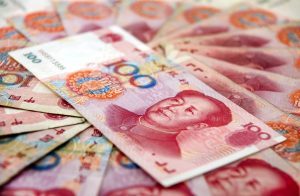When Sri Lanka defaulted on its debt last year and ran out of foreign exchange to fund imports, protests erupted in the capital, Colombo, that toppled the prime minister and president. Sri Lanka’s debt crisis is the canary in the developing world’s coal mine. The International Monetary Fund (IMF) has said that 60 percent of low-income countries are in or near debt distress. When the IMF convenes a high-level roundtable of key creditor and debtor governments, which is expected to take place on February 27 in India, all eyes will be on China.
China has lent over $1 trillion to more than 150 countries as part of its Belt and Road Initiative beginning in 2013, making it the world’s largest official creditor. As many of these governments strain under the compounded pressure of the COVID-19 pandemic and inflation, China’s willingness to restructure their debt will have far-reaching consequences for the rights of millions across the globe to an adequate standard of living, health, and education. But thus far China has offered even less than other creditor governments to enable distressed economies to emerge from crisis while protecting people’s rights.
In Sri Lanka, for example, the protests have subsided but the hardship has not: More than one in four Sri Lankans — 6.3 million people out of a population of 22 million — are facing moderate to severe food insecurity, according to the United Nations, and poverty rose from 13 to 25 percent of the population. The lack of agreement on debt restructuring with China hangs heavily over the crisis.
U.N. experts on foreign debt and human rights have long stressed that debt crises should be resolved in a way that protects debtor governments’ ability to adequately invest in economic and social rights. This creates human rights obligations for a range of actors, including creditor governments. In 2019, the U.N. Human Rights Council adopted a set of guiding principles for a rights-based approach to addressing economic crises that highlight the need for human rights impact assessments to ensure that all relevant actors, including creditor governments, align their positions to best protect human rights.
The obligation of governments facing economic crises to prioritize rights requires support from other governments and institutions, including that creditors “refrain from predatory or obstructive behavior” that hurts countries’ capacity to meet their human rights obligations.
Yuefen Li, an independent U.N. expert on foreign debt and human rights, called the predicament debtor governments are facing in the wake of COVID-19 a “choice between servicing debt or saving lives.” Her 2021 report sets out recommendations for reforming the international debt architecture, which includes a call for debt cancellation “for countries in huge debt distress and economic contraction… to adequately restore their ability to provide for their populations.”
The Chinese government has long sought to portray itself at the United Nations as a champion of economic, social and cultural rights both at home and in the developing world. It took the lead on the U.N. Human Rights Council’s resolution 49/19 of April 2022, which recognizes that the COVID-19 pandemic’s wide-ranging negative impact on rights sheds “light on the structural consequences of decades of underfunded or dismantled public services” related to access to adequate food, housing, water and sanitation, social security, health, and education.
Beijing’s ostensible commitment to economic and social rights at the United Nations is at odds with its apparent resistance to debt restructuring and cancellation, making it harder for debt-burdened governments to ensure that servicing debt doesn’t undermine their human rights obligations. In Sri Lanka, where China holds about 20 percent of the government’s external debt, it offered only a two-year moratorium on payments after years of rebuffing requests to restructure loans. All other governments holding Sri Lanka’s debt have agreed in principle to debt relief, although the exact amount would be determined by what is needed to meet the targets of an IMF program, a commitment known as financing assurances.
The IMF is currently assessing whether China’s terms meet its requirements to unleash funds as part of a $2.9 billion loan agreement it reached with the Sri Lankan government last September. In turn, that would enable the World Bank and Asian Development Bank to provide new financing. Economists worry that if these funds don’t arrive soon, it could lead to a worse crisis. But we don’t need to look into the future to see that ordinary Sri Lankans are suffering now under an unsustainable level of debt.
Those elsewhere may look at Sri Lankans’ plight and worry for their own futures. Pakistan, a nation of 230 million in which China holds 30 percent of the government’s foreign debt, is on the precipice of a foreign exchange and debt crisis. It appears the government has reached a deal with the IMF to restart a stalled loan program, but the danger of default has not passed.
Beijing’s rhetoric on economic, social, and cultural rights has long exceeded its actions. Should the Chinese government genuinely value the rights it claims to promote at the United Nations, it needs to urgently reassess how it manages the unsustainable debt it holds.

































